With the Queen passing away, like many people, we've been thinking about the British and their ever-evolving way of life. Our own intersection with the Queen and her stories originated in the years Ben spent at The King's School, Canterbury, an ancient, then a royally chartered, and then a colonial Public School designed to train the future masters of an Empire that no longer existed.
Ben's friends and fellow alumni hailed from consulships, military missions, and commercial interests all over the former lands—from New Delhi and Lahore, to Nairobi and Johannesburg, to Hong Kong and Teheran. At the time, many of us felt like a lost generation, with all that endless labor and rigid discipline dedicated to no discernible social purpose or personal value.
When we all scattered, Ben lost touch with everyone, as if waking from a long, irrelevant dream. So the question this week is: Can you go home again or not and, if you do, what version of yourself will you find there?
We're still working on that.
Maybe you had to be there…
When Ben was a mere British schoolboy in the 1960s, he spent a massive amount of time memorizing the dates of English history. That was how the subject was taught in those days, as if there existed no gradation in the vital importance of 1066, 1832, 1945, or 1992 (the year Glinda finally said “Yes!”). Boys memorized the dates and their events with equal dread, with rulers across the knuckles for neglecting Ethelred the Unready, the Corn Laws, the Gunpowder Plot, or the Battle of Bosworth Field.
And then, Ben found a hilarious (at least by English standards) book that explained everything and nothing, called:
The first of those Genuine Dates being 1066, of course—the clear lesson being that English and British history began in the year when William the Conqueror came over from Normandy and taught the brutish Anglo-Saxons the finer points of French manners.
And yet…
The year William invaded, Ben’s alma mater, The King’s School, Canterbury, had already been in business for 469 years. It was, and still is today, the oldest continuously operated school in the world. And for the classic, stiff-upper-lipped snob-in-training of Ben’s schooldays, those were the only 469 years that counted. Eton (1440) and Oxford (1096) were adolescents in comparison. Harvard (1636) and Yale (1701) were mere blips on the timeline of academic history.
And so it was a major event this year (another date to memorize?), when Ben opened his email to find that, after 1,425 years, The King School had appointed its first female Head, one Judith Lowson, recently Head of King’s College School, Wimbledon, and London’s Putney High.
The term “Head” is the awkward, but politically correct, replacement for what the English used to call Headmasters and Headmistresses. Ben’s Headmaster at King’s was a perfect gentleman, the Rev. J. P. Newell, who, as a church chaplain, was known to the boys (with no serious disrespect intended) as “The Dog” (“God” spelled backwards).
If it’s still possible to feel an occasional pang of guilt over events as ancient as these, Ben has to admit to doing everything he could to drive The Dog and his Housemasters crazy and to triggering an expulsion along the way. Fortunately, nothing worked, and Ben served out his full four years of a superb education before escaping to freedom in America.
Another alumnus, William Somerset Maugham, complained bitterly about his servitude at the school in his brilliant autobiographical novel, “Of Human Bondage”. But then, in old age, Maugham relented and had his ashes scattered in the garden between the library and the (relatively) New Science Building.
We suppose that’s what happens to most of us as we age, gracefully or not, and soften all those hard edges and seething anxieties of youth. So when Glinda insisted on visiting the scene of so many early mishaps and misadventures, Ben finally relented and took her for the grand tour.
It’s impossible to imagine a more beautiful town and campus than Canterbury and the Cathedral Precincts where King’s was founded:
The Cloisters, where the boys lined up every Sunday evening for Evensong on the precise flagstone where, in 1170, the Archbishop of Canterbury, Saint Thomas à Becket, was martyred by King Henry II’s thugs.
The Norman Staircase of 1100AD and the exquisitely ancient School Library above the Memorial Court—the memorial being to the 146 boys in the class of 1914 who rushed off to the Fields of Flanders in World War I and never returned.
The creaky School Shop, now a private gift emporium, where Ben was outfitted for his school uniform—a throwback, black pinstripe ensemble with hard, winged collar that hadn’t changed since 1832.
The delicate ruins of the Cathedral gardens, where the school drama department put on a production of Shakespeare’s King Lear every bit as gloomy and professional as anything on the London Stage.
The Great Dining Hall, where Ben sat beneath the glowering portrait of alumnus Field Marshall Bernard Montgomery and was served some of the worst food in history.
But the key moment, at least on our tour, arrived when we approached Ben’s old digs in Walpole House, between the Great Hall and the Archbishop’s Palace, and found frilly, feminine curtains in the window. The shocker being that the school had gone co-ed all the way back in the 1970s (just after Ben exited!) and thus opened up the possibility of chopping the “-master” off the title “Headmaster” and making it possible for Ms. Lowson to find employment as the new Head.
For an institution that had built its entire modus vivendi on a fervent attachment to ancient history and an instinctive, almost pathological aversion to change, this was seismic.
In 1940, the American author Thomas Wolfe published a well-received novel, “You Can’t Go Home Again”. The famous quote at the end runs:
"You can't go back home to your family, back home to your childhood ... back home to a young man's dreams of glory and of fame ... back home to places in the country, back home to the old forms and systems of things which once seemed everlasting, but which are changing all the time – back home to the escapes of Time and Memory."
And for the traveler looking to return to his or her roots, this is the melancholy, if inevitable, truth: The more fondly you recall the times and places of your youth and childhood, the less likely you are to ever see them again.
But that’s why the Lord gave us memory—or failing that, the imagination to recreate the past the way we wish it had played out. Just don’t expect an archeological dig into your salad days to corroborate your personal set of facts.



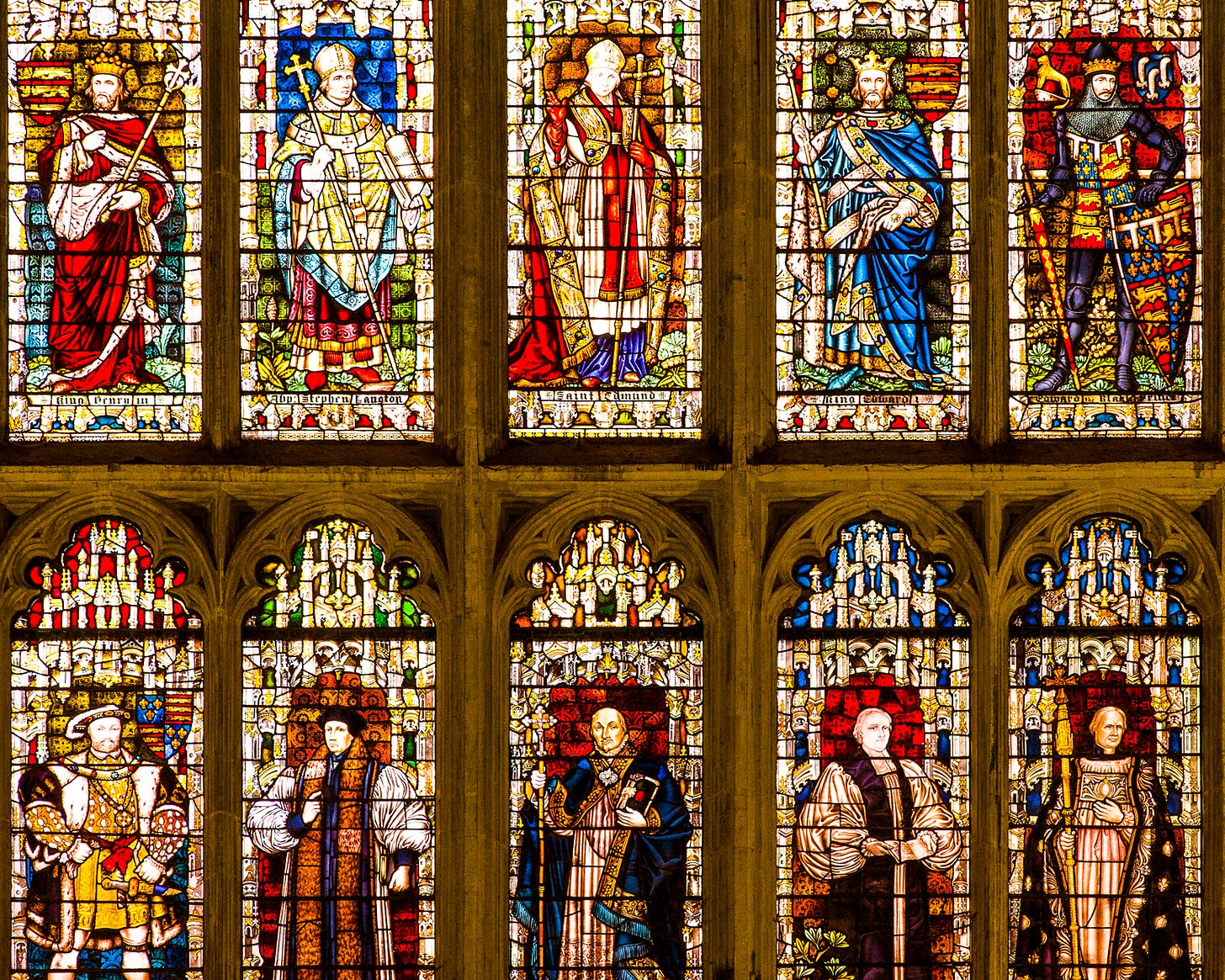
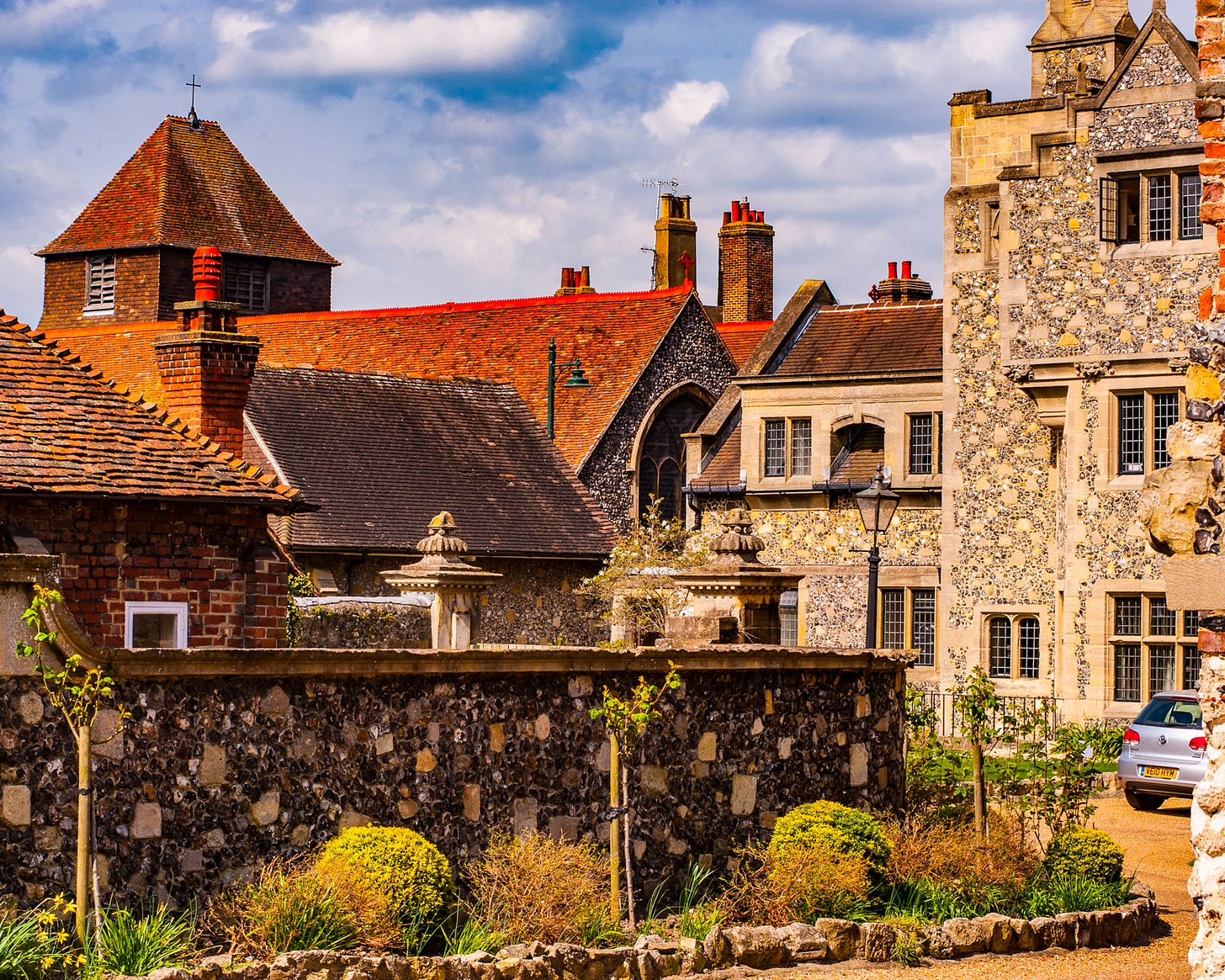
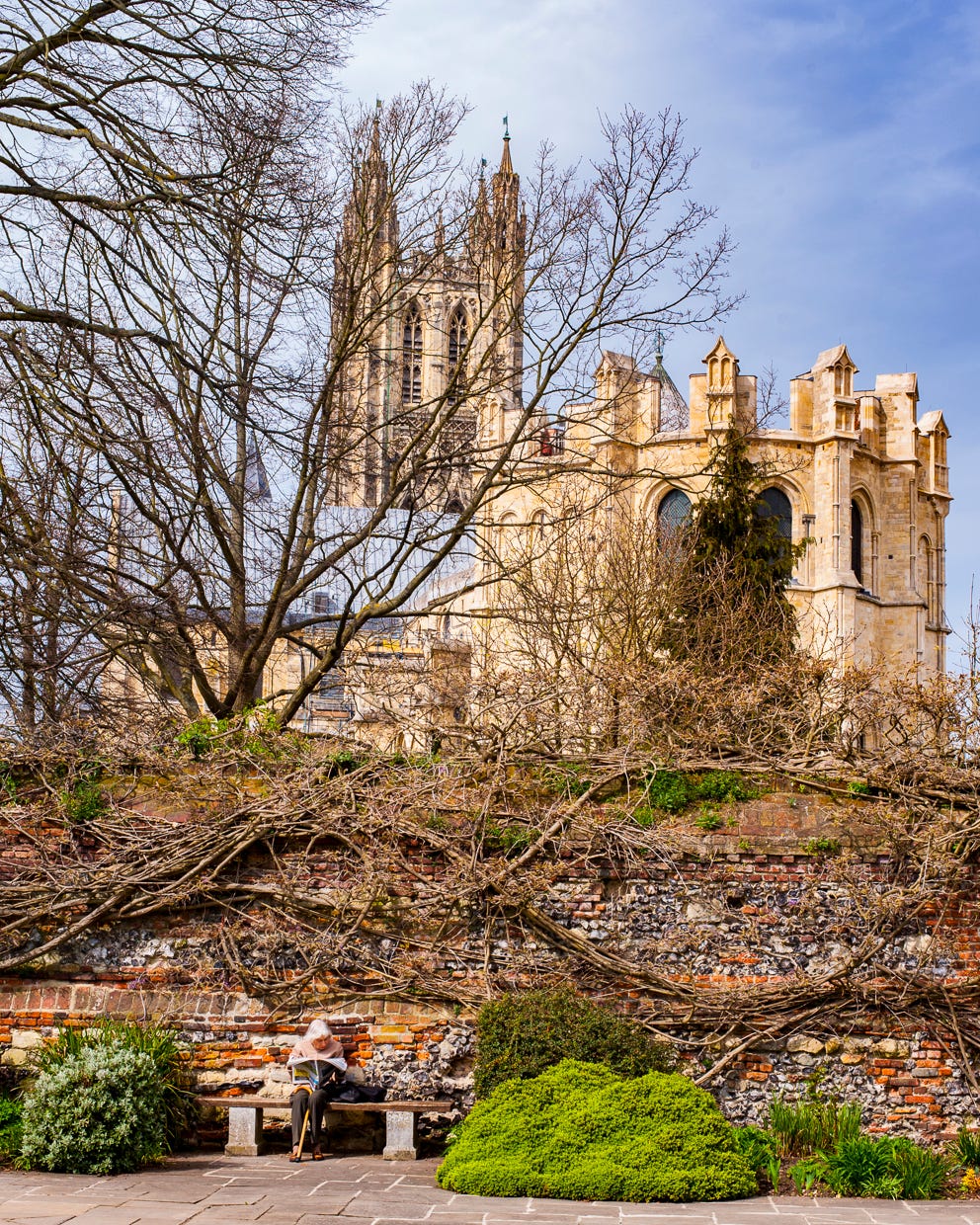
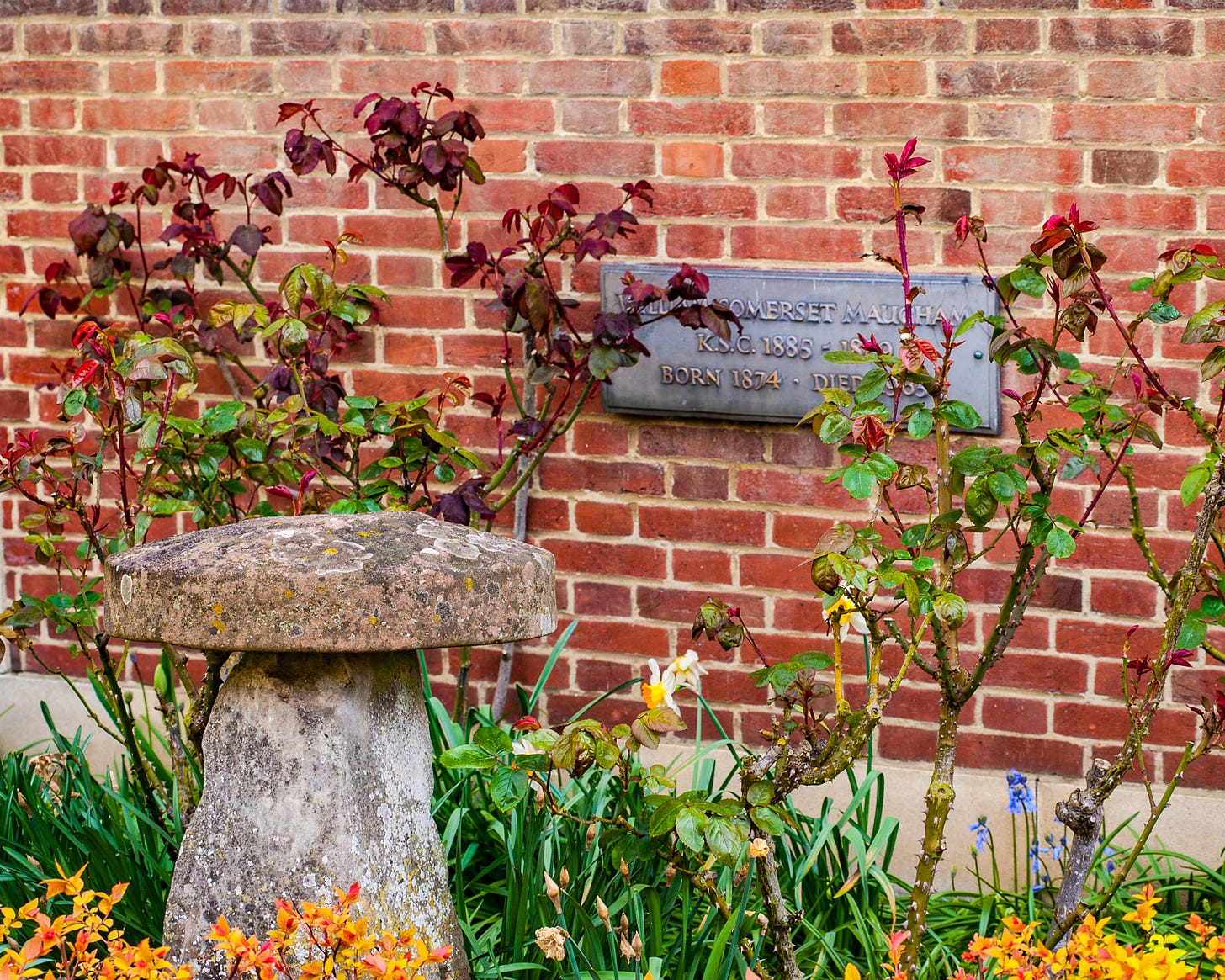
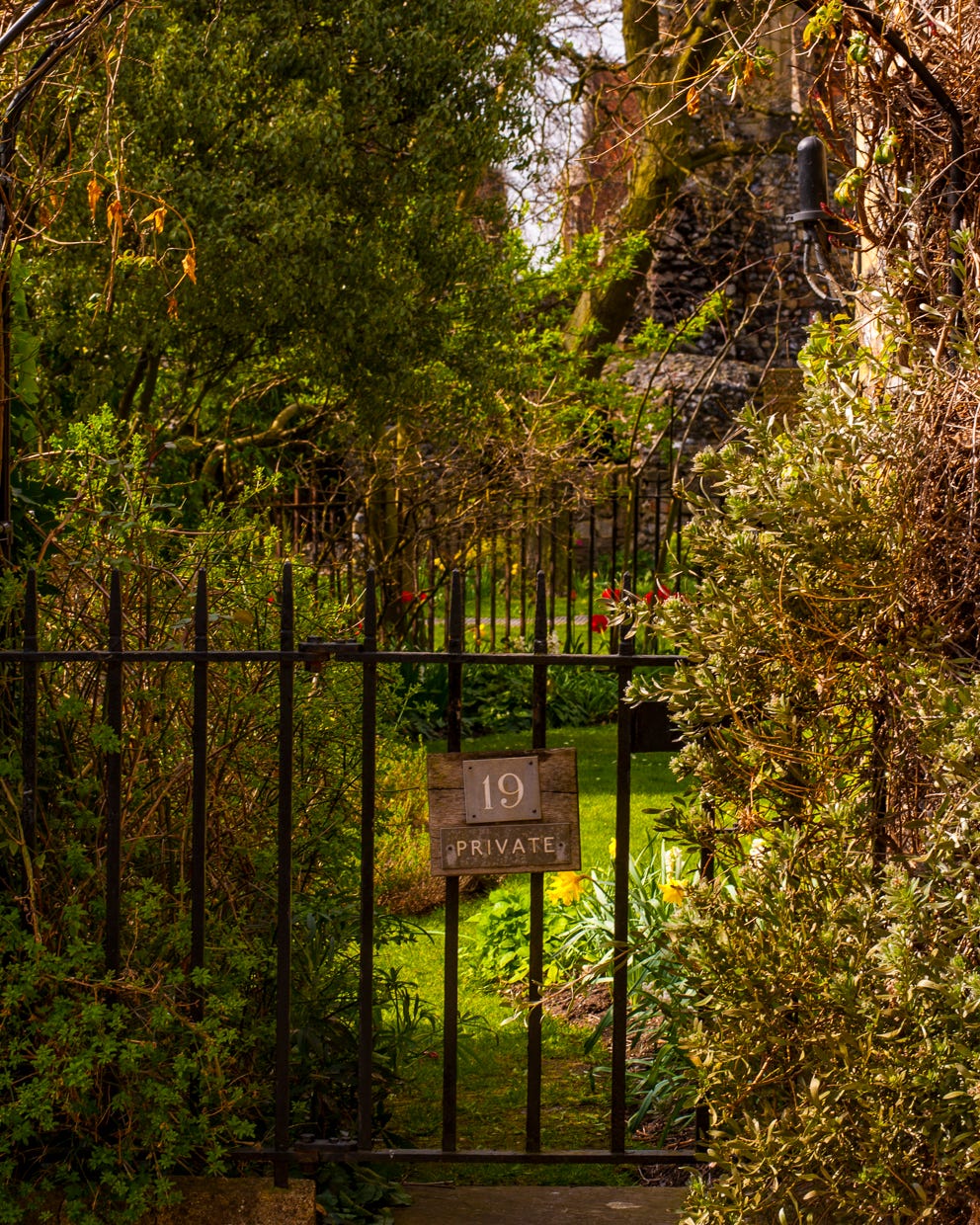
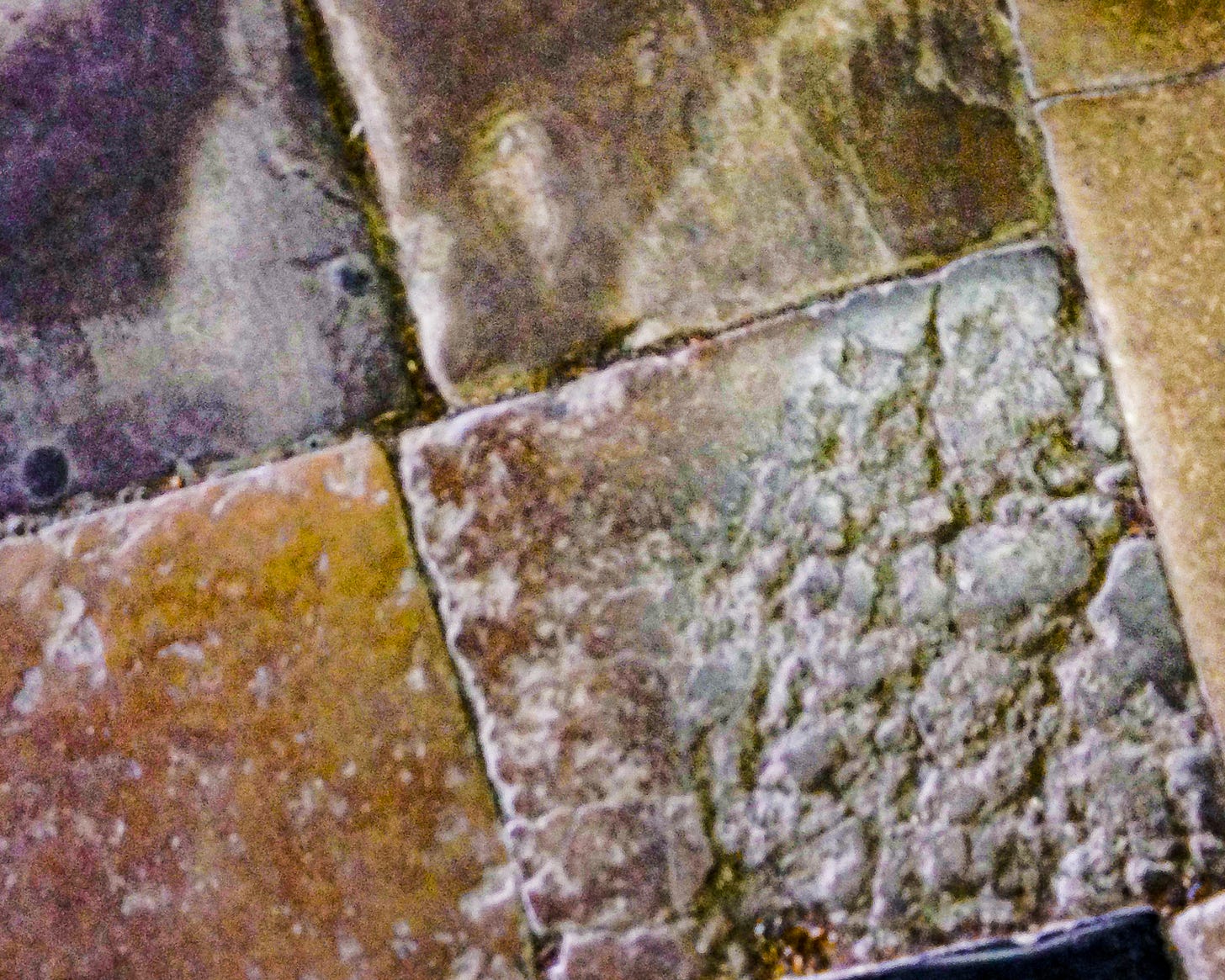
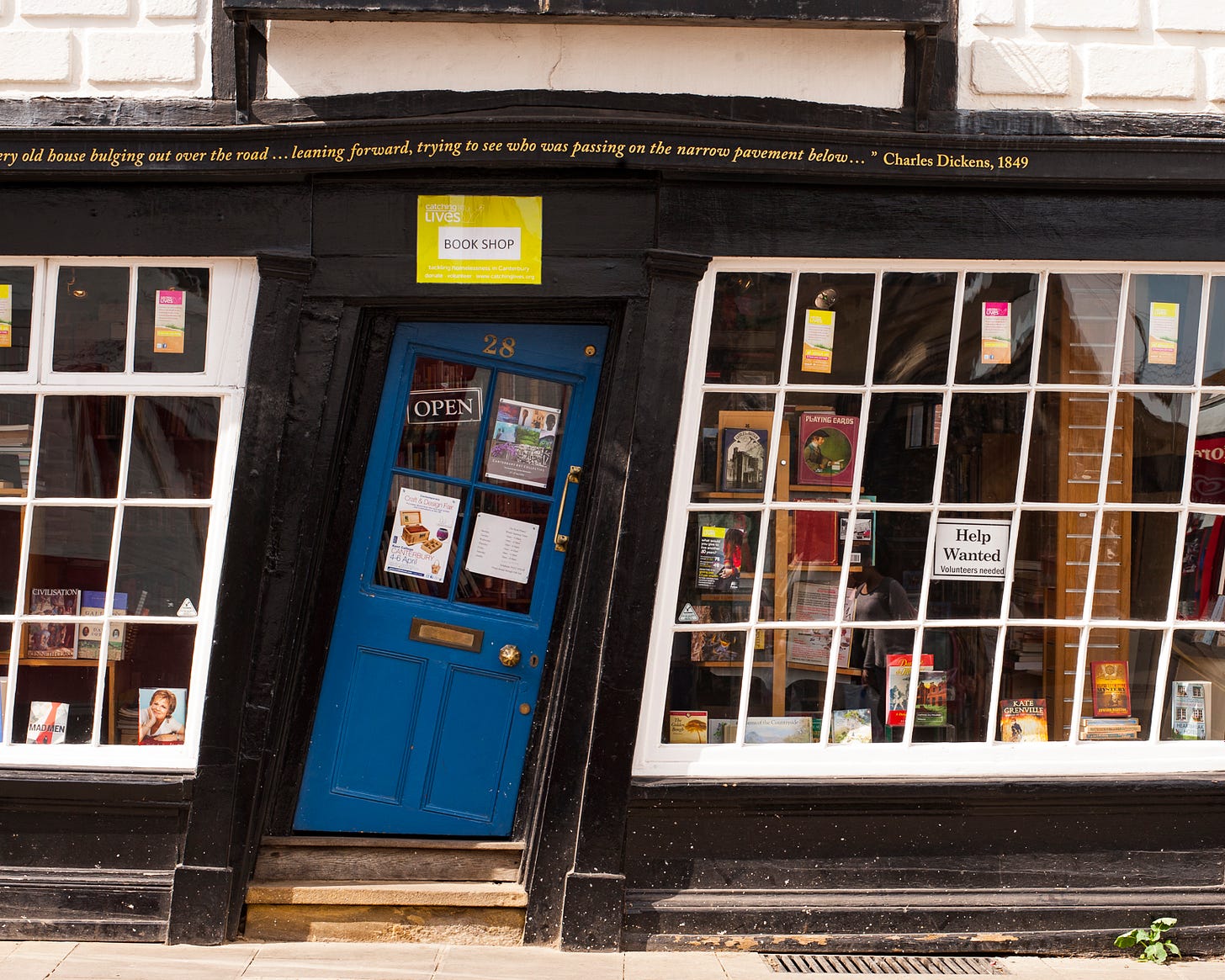
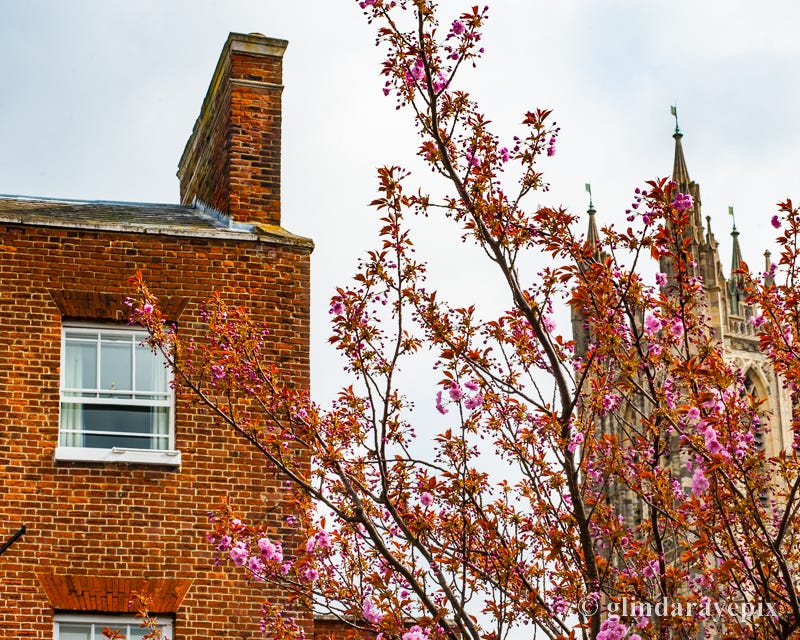
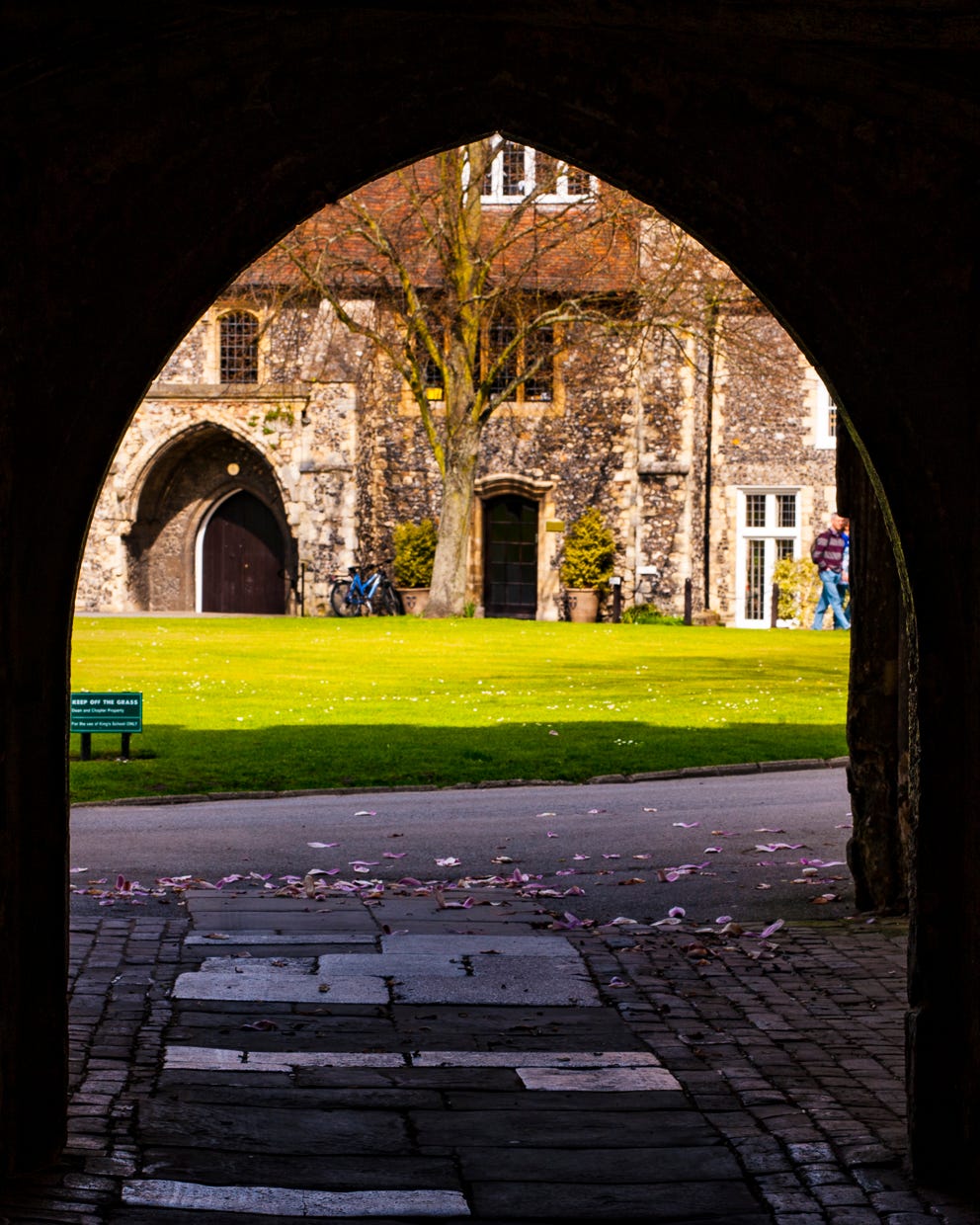
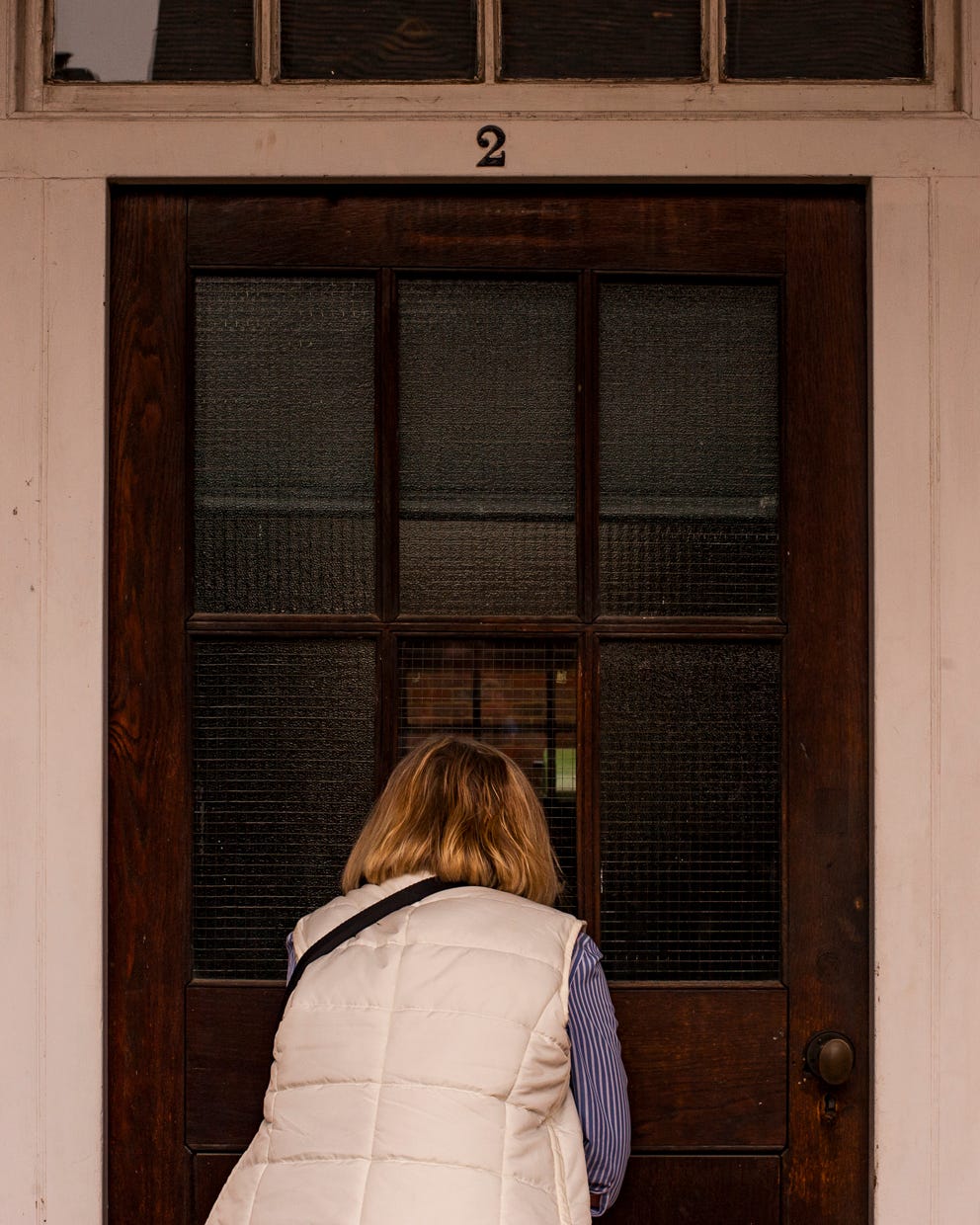
Beautiful post, thanks for taking us back with you, and for the lovely photos. So interesting about Maugham.
I love that! What a fun read! I have to say my boarding school cafeteria could probably give the Great Dining Hall some competition for the worst food in history. Glad you were able to go back!